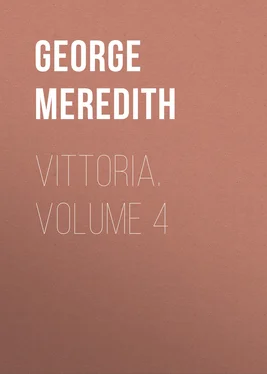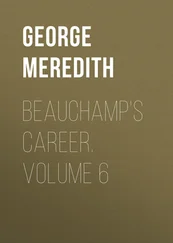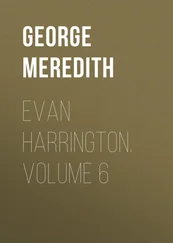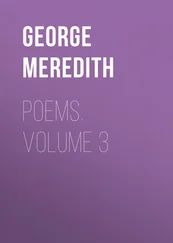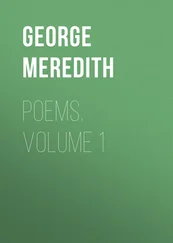George Meredith - Vittoria. Volume 4
Здесь есть возможность читать онлайн «George Meredith - Vittoria. Volume 4» — ознакомительный отрывок электронной книги совершенно бесплатно, а после прочтения отрывка купить полную версию. В некоторых случаях можно слушать аудио, скачать через торрент в формате fb2 и присутствует краткое содержание. Жанр: Альтернативная история, literature_19, foreign_antique, foreign_prose, Исторические приключения, на английском языке. Описание произведения, (предисловие) а так же отзывы посетителей доступны на портале библиотеки ЛибКат.
- Название:Vittoria. Volume 4
- Автор:
- Жанр:
- Год:неизвестен
- ISBN:нет данных
- Рейтинг книги:3 / 5. Голосов: 1
-
Избранное:Добавить в избранное
- Отзывы:
-
Ваша оценка:
- 60
- 1
- 2
- 3
- 4
- 5
Vittoria. Volume 4: краткое содержание, описание и аннотация
Предлагаем к чтению аннотацию, описание, краткое содержание или предисловие (зависит от того, что написал сам автор книги «Vittoria. Volume 4»). Если вы не нашли необходимую информацию о книге — напишите в комментариях, мы постараемся отыскать её.
Vittoria. Volume 4 — читать онлайн ознакомительный отрывок
Ниже представлен текст книги, разбитый по страницам. Система сохранения места последней прочитанной страницы, позволяет с удобством читать онлайн бесплатно книгу «Vittoria. Volume 4», без необходимости каждый раз заново искать на чём Вы остановились. Поставьте закладку, и сможете в любой момент перейти на страницу, на которой закончили чтение.
Интервал:
Закладка:
George Meredith
Vittoria – Volume 4
CHAPTER XX
THE OPERA OF CAMILLA
She was dressed like a noble damsel from the hands of Titian. An Italian audience cannot but be critical in their first glance at a prima donna, for they are asked to do homage to a queen who is to be taken on her merits: all that they have heard and have been taught to expect of her is compared swiftly with the observation of her appearance and her manner. She is crucially examined to discover defects. There is no boisterous loyalty at the outset. And as it was now evident that Vittoria had chosen to impersonate a significant character, her indications of method were jealously watched for a sign of inequality, either in her, motion, or the force of her eyes. So silent a reception might have seemed cruel in any other case; though in all cases the candidate for laurels must, in common with the criminal, go through the ordeal of justification. Men do not heartily bow their heads until they have subjected the aspirant to some personal contest, and find themselves overmatched. The senses, ready to become so slavish in adulation and delight, are at the beginning more exacting than the judgement, more imperious than the will. A figure in amber and pale blue silk was seen, such as the great Venetian might have sketched from his windows on a day when the Doge went forth to wed the Adriatic a superb Italian head, with dark banded hair-braid, and dark strong eyes under unabashed soft eyelids! She moved as, after long gazing at a painting of a fair woman, we may have the vision of her moving from the frame. It was an animated picture of ideal Italia. The sea of heads right up to the highest walls fronted her glistening, and she was mute as moonrise. A virgin who loosens a dove from her bosom does it with no greater effort than Vittoria gave out her voice. The white bird flutters rapidly; it circles and takes its flight. The voice seemed to be as little the singer's own.
The theme was as follows:—Camilla has dreamed overnight that her lost mother came to her bedside to bless her nuptials. Her mother was folded in a black shroud, looking formless as death, like very death, save that death sheds no tears. She wept, without change of voice, or mortal shuddering, like one whose nature weeps: 'And with the forth-flowing of her tears the knowledge of her features was revealed to me.' Behold the Adige, the Mincio, Tiber, and the Po!—such great rivers were the tears pouring from her eyes. She threw apart the shroud: her breasts and her limbs were smooth and firm as those of an immortal Goddess: but breasts and limbs showed the cruel handwriting of base men upon the body of a martyred saint. The blood from those deep gashes sprang out at intervals, mingling with her tears. She said:
'My child! were I a Goddess, my wounds would heal. Were I a Saint, I should be in Paradise. I am no Goddess, and no Saint: yet I cannot die. My wounds flow and my tears. My tears flow because of no fleshly anguish: I pardon my enemies. My blood flows from my body, my tears from my soul. They flow to wash out my shame. I have to expiate my soul's shame by my body's shame. Oh! how shall I tell you what it is to walk among my children unknown of them, though each day I bear the sun abroad like my beating heart; each night the moon, like a heart with no blood in it. Sun and moon they see, but not me! They know not their mother. I cry to God. The answer of our God is this:—"Give to thy children one by one to drink of thy mingled tears and blood:—then, if there is virtue in them, they shall revive, thou shaft revive. If virtue is not in them, they and thou shall continue prostrate, and the ox shall walk over you." From heaven's high altar, O Camilla, my child, this silver sacramental cup was reached to me. Gather my tears in it, fill it with my blood, and drink.'
The song had been massive in monotones, almost Gregorian in its severity up to this point.
'I took the cup. I looked my mother in the face. I filled the cup from the flowing of her tears, the flowing of her blood; and I drank!'
Vittoria sent this last phrase ringing out forcefully. From the inveterate contralto of the interview, she rose to pure soprano in describing her own action. 'And I drank,' was given on a descent of the voice: the last note was in the minor key—it held the ear as if more must follow: like a wail after a triumph of resolve. It was a masterpiece of audacious dramatic musical genius addressed with sagacious cunning and courage to the sympathizing audience present. The supposed incompleteness kept them listening; the intentness sent that last falling (as it were, broken) note travelling awakeningly through their minds. It is the effect of the minor key to stir the hearts of men with this particular suggestiveness. The house rose, Italians—and Germans together. Genius, music, and enthusiasm break the line of nationalities. A rain of nosegays fell about Vittoria; evvivas, bravas, shouts—all the outcries of delirious men surrounded her. Men and women, even among the hardened chorus, shook together and sobbed. 'Agostino!' and 'Rocco!' were called; 'Vittoria!' 'Vittoria!' above all, with increasing thunder, like a storm rushing down a valley, striking in broad volume from rock to rock, humming remote, and bursting up again in the face of the vale. Her name was sung over and over—'Vittoria! Vittoria!' as if the mouths were enamoured of it.
'Evviva la Vittoria a d' Italia!' was sung out from the body of the house.
An echo replied—
'"Italia a il premio della VITTORIA!"' a well-known saying gloriously adapted, gloriously rescued from disgrace.
But the object and source of the tremendous frenzy stood like one frozen by the revelation of the magic the secret of which she has studiously mastered. A nosegay, the last of the tributary shower, discharged from a distance, fell at her feet. She gave it unconsciously preference over the rest, and picked it up. A little paper was fixed in the centre. She opened it with a mechanical hand, thinking there might be patriotic orders enclosed for her. It was a cheque for one thousand guineas, drawn upon an English banker by the hand of Antonio-Pericles Agriolopoulos; freshly drawn; the ink was only half dried, showing signs of the dictates of a furious impulse. This dash of solid prose, and its convincing proof that her Art had been successful, restored Vittoria's composure, though not her early statuesque simplicity. Rocco gave an inquiring look to see if she would repeat the song. She shook her head resolutely. Her opening of the paper in the bouquet had quieted the general ebullition, and the expression of her wish being seen, the chorus was permitted to usurp her place. Agostino paced up and down the lobby, fearful that he had been guilty of leading her to anticlimax.
He met Antonio-Pericles, and told him so; adding (for now the mask had been seen through, and was useless any further) that he had not had the heart to put back that vision of Camilla's mother to a later scene, lest an interruption should come which would altogether preclude its being heard. Pericles affected disdain of any success which Vittoria had yet achieved. 'Wait for Act the Third,' he said; but his irritable anxiousness to hold intercourse with every one, patriot or critic, German, English, or Italian, betrayed what agitation of exultation coursed in his veins. 'Aha!' was his commencement of a greeting; 'was Antonio-Pericles wrong when he told you that he had a prima donna for you to amaze all Christendom, and whose notes were safe and firm as the footing of the angels up and down Jacob's ladder, my friends? Aha!'
'Do you see that your uncle is signalling to you?' Countess Lena said to Wilfrid. He answered like a man in a mist, and looked neither at her nor at the General, who, in default of his obedience to gestures, came good- humouredly to the box, bringing Captain Weisspriess with him.
Читать дальшеИнтервал:
Закладка:
Похожие книги на «Vittoria. Volume 4»
Представляем Вашему вниманию похожие книги на «Vittoria. Volume 4» списком для выбора. Мы отобрали схожую по названию и смыслу литературу в надежде предоставить читателям больше вариантов отыскать новые, интересные, ещё непрочитанные произведения.
Обсуждение, отзывы о книге «Vittoria. Volume 4» и просто собственные мнения читателей. Оставьте ваши комментарии, напишите, что Вы думаете о произведении, его смысле или главных героях. Укажите что конкретно понравилось, а что нет, и почему Вы так считаете.
